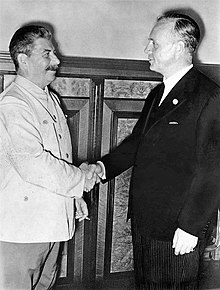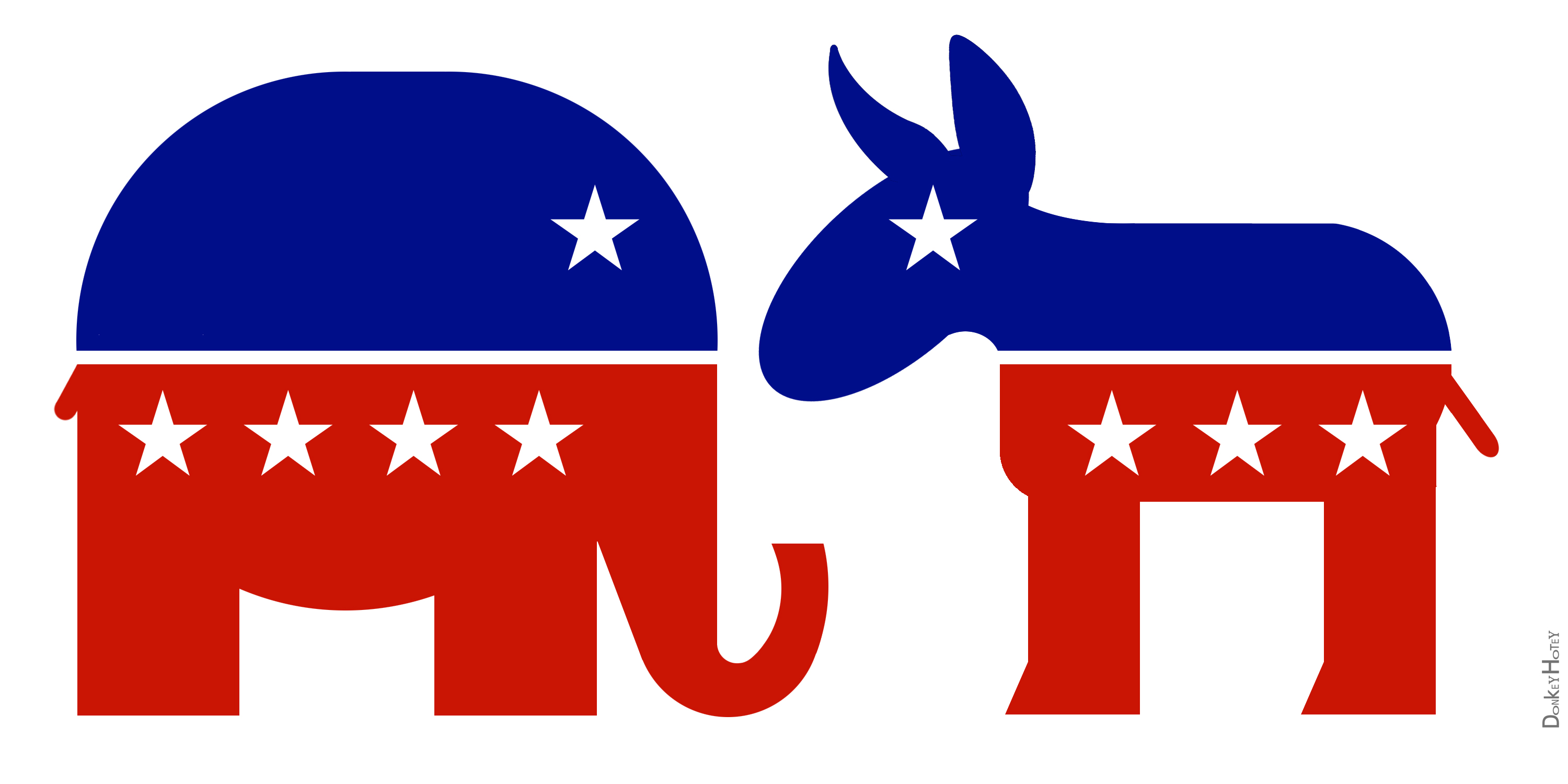- Poruka
- 41.996
23.avgust je dan kada Evropa obeležava sećanje na žrtve svih totalitarnih režima i posebno Staljinizma i nacizma.
Link ka vikipediji https://en.wikipedia.org/wiki/Black_Ribbon_Day
Zajedničko saopštenje prvog potpredsednika Timermansa, komesarke Jurove i komesara Navračiča uoči Evropskog dana sećanja na žrtve svih totalitarnih i autoritarnih režima:
„Na sutrašnji dan, 23. avgusta 1939. nacistička Nemačka i Sovjetski savez su potpisale Sporazum Molotov-Ribentrop. Ovaj Sporazum je obeležio početak jednog od najmračnijih perioda u novijoj istoriji našeg kontinenta koji je doneo proterivanje, mučenje i smrt nekoliko desetina miliona ljudi koji su živeli u totalitarnim režimima. Uprkos tome što je kraj Drugog svetskog rata doneo poraz nacističkom režimu, veliki broj srednje i istočnoevropskih država je i dalje živelo pod ovakvim režimima. Sutra, na 77. godišnjicu od potpisivanja Sporazuma, odajemo počast svim žrtvama totalitarnih i autoritarnih režima koji su tokom 20. veka ostavili ožiljke u pojedinim delovima Evrope. Evropski dan sećanja na žrtve totalitarnih i autoritarnih režima čuva uspomenu na žrtve i odaje im počast. Osim toga, ovaj dan nam pomaže da ne zaboravimo lekcije koje smo naučili iz ovog mračnog perioda evropske istorije.„
-------------------------------------------------------------------------------------------------------------------------------
Evo našao sam članak sa vikipedije na hrvatskom

Josif Staljin i Joachim von Ribbentrop u rujnu 1939. u Moskvi. Spomendan obilježava pakt Hitlera i Staljina.
Europski dan sjećanja na žrtve totalitarnih i autoritarnih režima – nacizma, fašizma i komunizma obilježava se 23. kolovoza kao spomendan u Republici Hrvatskoj i europski je dan sjećanja na žrtve totalitarnih diktatura u Europi u 20. stoljeću.[1]
Spomendan je uveden odlukom Hrvatskoga sabora, a slijedom Rezolucije Europskog parlamenta o europskoj savjesti i totalitarizmu od 2. travnja 2008. godine.
Europski parlament je 19. rujna 2019. godine donio dodatnu Rezoluciju o važnosti europskog sjećanja za budućnost Europe o važnosti europskog sjećanja za budućnost Europe (2019/2819(RSP).
Dana 23. kolovoza 1939. godine potpisan je njemačko-sovjetski pakt o nenapadanju, poznat kao Sporazum Molotov-Ribbentrop, kojim je postignut javni sporazum o nenapadanju i tajni sporazum o podjeli interesnih sfera u Istočnoj Europi. U slobodnom svijetu na taj dan organizirali su se prosvjedi pod nazivom Dan crne vrpce s ciljem upoznavanja svijeta o prikrivanju zločina.
Dana 23. rujna 2008. potpisana je izjava potpore od 409 članova Europskog parlamenta za uspostavu dana sjećanja [2]. Potvrđen je točkom 15. Rezolucije Europskog parlamenta o europskoj savjesti i totalitarizmu od 2. travnja 2008. odlukom o proglašenju dana sjećanja na žrtve staljinizma i nacionalsocijalizma sa 533 glasova (44 protiv i 33 suzdržanih).[3] U završnom dijelu Rezolucije pozvani su parlamenti i vlade svih država članica EU, država kandidatkinja za EU kao i zemalja povezanih s Europskom unijom, na usvajanje i provedbu te Rezolucije.
Parlamentarna skupština Vijeća Europe odlučno osuđuje teška kršenja ljudskih prava koja su počinili totalitarni komunistički režimi te izražava suosjećanje, razumijevanje i priznanje za žrtve tih zločina. Skupština vjeruje da žrtve zločina totalitarnih komunističkih režima koje su još žive, ili njihove obitelji, zaslužuju sućut, razumijevanje i priznavanje njihovih patnji i time Skupština poziva sve komunističke i post-komunističke stranke u svojim državama članicama, koje to još nisu učinile, da ponovno ocijene povijest komunizma i svoju vlastitu prošlost, da se jasno distanciraju od zločina totalitarnih komunističkih režima te da ih potpuno jasno osude. [4]
Hrvatski sabor je 30. lipnja 2006. godine donio Deklaraciju o osudi zločina počinjenih tijekom totalitarnog komunističkog poretka u Hrvatskoj 1945. – 1990. (NN, 76/2006) u kojoj je navedeno da su totalitarni komunistički režimi bili, bez iznimke, označeni masovnim povredama ljudskih prava.
Europski je parlament u svojoj preporuci naglasio da svaka zemlja prilagodi vrijeme i način obilježavanja sjećanja na žrtve totalitarnih režima vlastitoj povijesti i tradiciji. Hrvatska se tako pridružila Estoniji, Latviji, Litvi, Sloveniji i Švedskoj obilježavanjem 23. kolovoza, Europskog dana sjećanja na žrtve totalitarnih i autoritarnih režima, dok osamnaest drugih članica obilježava 27. siječnja, Međunarodni dan sjećanja na žrtve holokausta.
Link ka vikipediji https://en.wikipedia.org/wiki/Black_Ribbon_Day
Zajedničko saopštenje prvog potpredsednika Timermansa, komesarke Jurove i komesara Navračiča uoči Evropskog dana sećanja na žrtve svih totalitarnih i autoritarnih režima:
„Na sutrašnji dan, 23. avgusta 1939. nacistička Nemačka i Sovjetski savez su potpisale Sporazum Molotov-Ribentrop. Ovaj Sporazum je obeležio početak jednog od najmračnijih perioda u novijoj istoriji našeg kontinenta koji je doneo proterivanje, mučenje i smrt nekoliko desetina miliona ljudi koji su živeli u totalitarnim režimima. Uprkos tome što je kraj Drugog svetskog rata doneo poraz nacističkom režimu, veliki broj srednje i istočnoevropskih država je i dalje živelo pod ovakvim režimima. Sutra, na 77. godišnjicu od potpisivanja Sporazuma, odajemo počast svim žrtvama totalitarnih i autoritarnih režima koji su tokom 20. veka ostavili ožiljke u pojedinim delovima Evrope. Evropski dan sećanja na žrtve totalitarnih i autoritarnih režima čuva uspomenu na žrtve i odaje im počast. Osim toga, ovaj dan nam pomaže da ne zaboravimo lekcije koje smo naučili iz ovog mračnog perioda evropske istorije.„
-------------------------------------------------------------------------------------------------------------------------------
Evo našao sam članak sa vikipedije na hrvatskom
Europski dan sjećanja na žrtve totalitarnih i autoritarnih režima – nacizma, fašizma i komunizma

Josif Staljin i Joachim von Ribbentrop u rujnu 1939. u Moskvi. Spomendan obilježava pakt Hitlera i Staljina.
Europski dan sjećanja na žrtve totalitarnih i autoritarnih režima – nacizma, fašizma i komunizma obilježava se 23. kolovoza kao spomendan u Republici Hrvatskoj i europski je dan sjećanja na žrtve totalitarnih diktatura u Europi u 20. stoljeću.[1]
Spomendan je uveden odlukom Hrvatskoga sabora, a slijedom Rezolucije Europskog parlamenta o europskoj savjesti i totalitarizmu od 2. travnja 2008. godine.
Europski parlament je 19. rujna 2019. godine donio dodatnu Rezoluciju o važnosti europskog sjećanja za budućnost Europe o važnosti europskog sjećanja za budućnost Europe (2019/2819(RSP).
Sadržaj
- 1Povijest
- 2Hrvatska
- 3Dodatna rezolucija Europskog parlamenta iz rujna 2019.
- 4Protivljenje Rusije
- 5Izvori
- 6Vanjske poveznice
Povijest
Spomendan potječe od Praške deklaracije o zločinima komunizma (3. lipnja 2008.), koju je između ostalih predložio i potpisao Vaclav Havel i brojni članovi Europskog parlamenta. Podsjeća na pakt Hitlera i Staljina.Dana 23. kolovoza 1939. godine potpisan je njemačko-sovjetski pakt o nenapadanju, poznat kao Sporazum Molotov-Ribbentrop, kojim je postignut javni sporazum o nenapadanju i tajni sporazum o podjeli interesnih sfera u Istočnoj Europi. U slobodnom svijetu na taj dan organizirali su se prosvjedi pod nazivom Dan crne vrpce s ciljem upoznavanja svijeta o prikrivanju zločina.
Dana 23. rujna 2008. potpisana je izjava potpore od 409 članova Europskog parlamenta za uspostavu dana sjećanja [2]. Potvrđen je točkom 15. Rezolucije Europskog parlamenta o europskoj savjesti i totalitarizmu od 2. travnja 2008. odlukom o proglašenju dana sjećanja na žrtve staljinizma i nacionalsocijalizma sa 533 glasova (44 protiv i 33 suzdržanih).[3] U završnom dijelu Rezolucije pozvani su parlamenti i vlade svih država članica EU, država kandidatkinja za EU kao i zemalja povezanih s Europskom unijom, na usvajanje i provedbu te Rezolucije.
Parlamentarna skupština Vijeća Europe odlučno osuđuje teška kršenja ljudskih prava koja su počinili totalitarni komunistički režimi te izražava suosjećanje, razumijevanje i priznanje za žrtve tih zločina. Skupština vjeruje da žrtve zločina totalitarnih komunističkih režima koje su još žive, ili njihove obitelji, zaslužuju sućut, razumijevanje i priznavanje njihovih patnji i time Skupština poziva sve komunističke i post-komunističke stranke u svojim državama članicama, koje to još nisu učinile, da ponovno ocijene povijest komunizma i svoju vlastitu prošlost, da se jasno distanciraju od zločina totalitarnih komunističkih režima te da ih potpuno jasno osude. [4]
Hrvatska
Obilježavanjem Europskog dana sjećanja na žrtve svih totalitarnih i autoritarnih režima, Hrvatska se pridružila većini zemalja članica EU u kojima se, na preporuku Europskog parlamenta, potiče na promišljanje osjetljivih i kompleksnih pitanja zajedničke povijesti i njezina očuvanja kako bi sljedeće generacije mogle iz nje učiti i graditi suživot na temeljima demokracije i uvažavanja temeljnih prava.Hrvatski sabor je 30. lipnja 2006. godine donio Deklaraciju o osudi zločina počinjenih tijekom totalitarnog komunističkog poretka u Hrvatskoj 1945. – 1990. (NN, 76/2006) u kojoj je navedeno da su totalitarni komunistički režimi bili, bez iznimke, označeni masovnim povredama ljudskih prava.
Europski je parlament u svojoj preporuci naglasio da svaka zemlja prilagodi vrijeme i način obilježavanja sjećanja na žrtve totalitarnih režima vlastitoj povijesti i tradiciji. Hrvatska se tako pridružila Estoniji, Latviji, Litvi, Sloveniji i Švedskoj obilježavanjem 23. kolovoza, Europskog dana sjećanja na žrtve totalitarnih i autoritarnih režima, dok osamnaest drugih članica obilježava 27. siječnja, Međunarodni dan sjećanja na žrtve holokausta.








